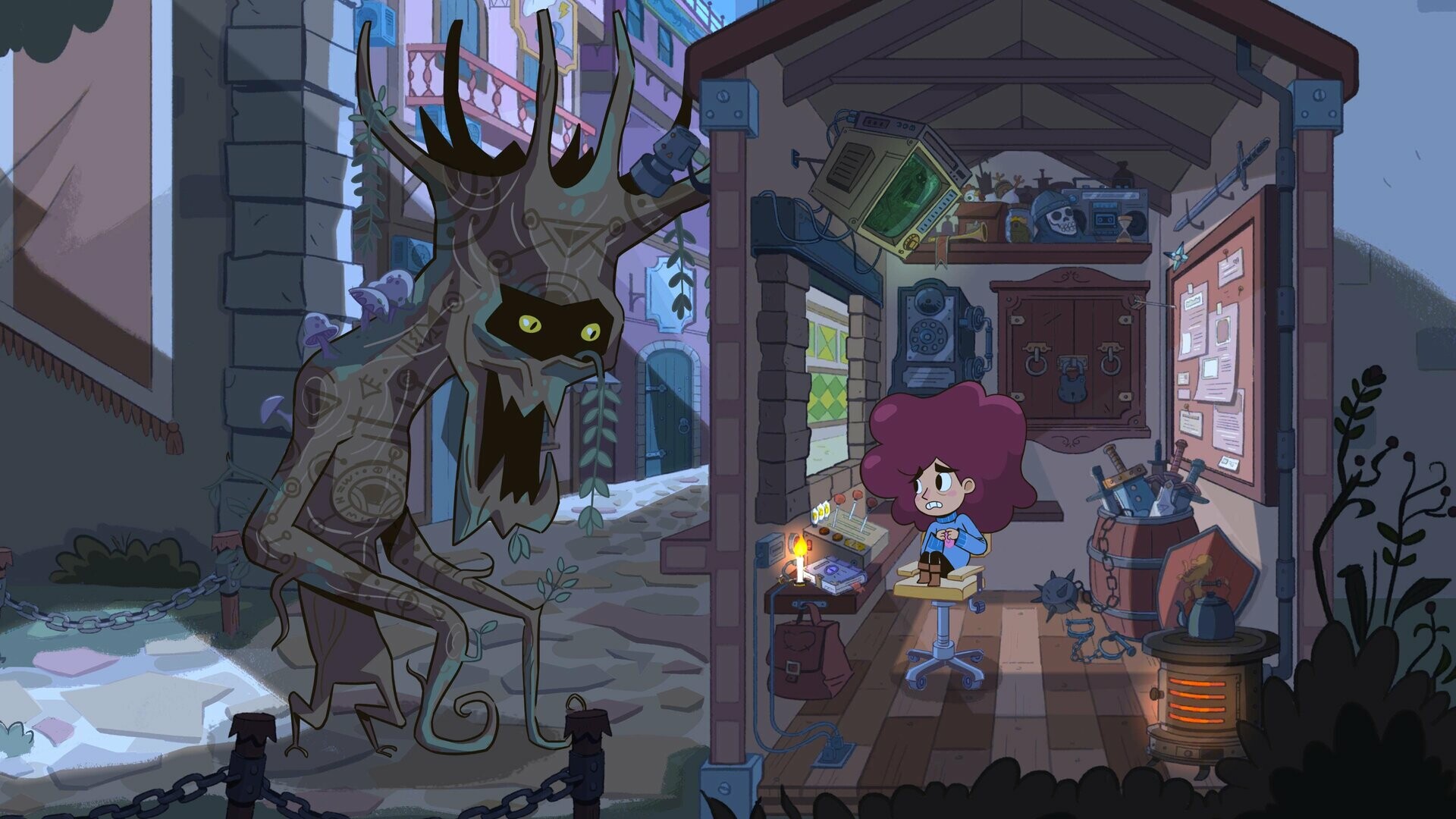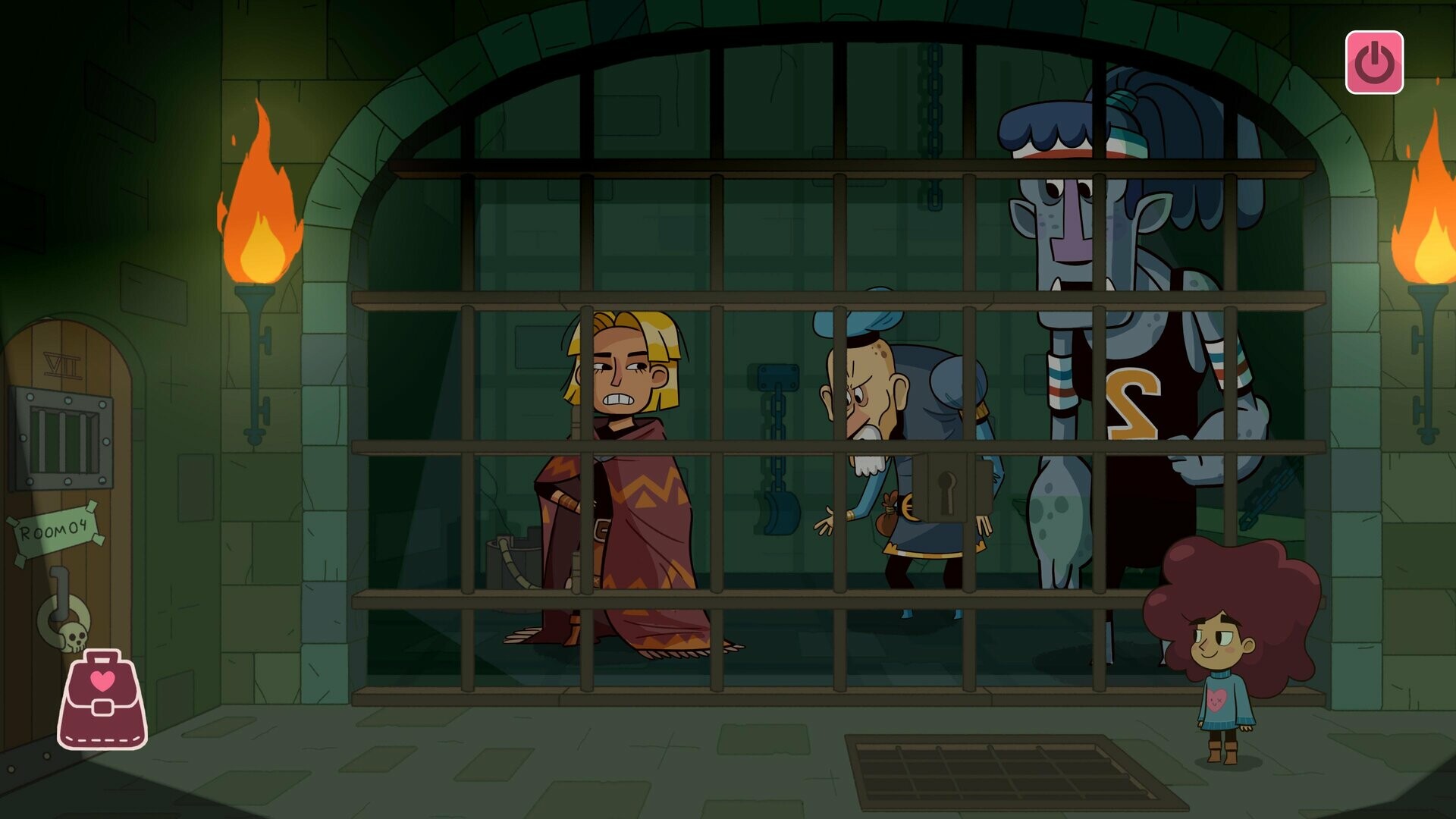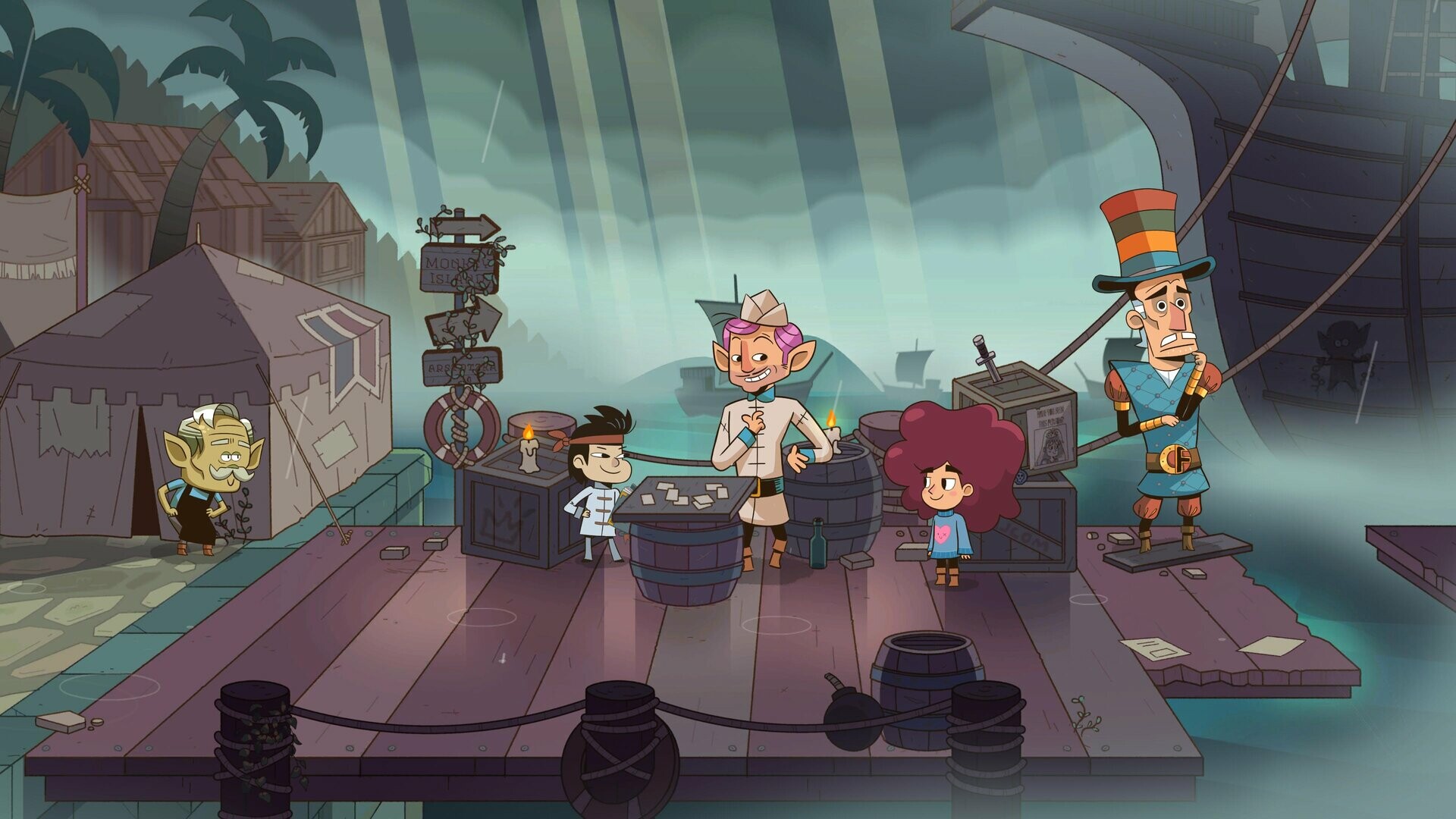Lil’ Guardsman is everything I love about indie games.
It features a charming hand-drawn Saturday morning cartoon-style aesthetic, a brilliant sense of humour, a refreshingly non-violent gameplay conceit and some catchy music. And best of all, it was made by Toronto’s own Hilltop Studios.
In Lil’ Guardsman, you play as a 12-year-old girl named Lilith who has to fill in for her dad as the guardsman of a medieval fantasy city known as the Sprawl. As you talk to each visitor, you’ll have to use a variety of dialogue choices and tools to deduce whether they should be admitted or denied entry. In that sense, it’s similar to Lucas Pope’s seminal puzzle sim 2014 Papers, Please, and Hilltop hasn’t shied away from that inspiration.
But where Pope’s creation was a more emotionally-charged tale about developing empathy for immigrants, Hilltop has been open about its desire to offer a more lighthearted spin on that gameplay framework. In fact, the team drew inspiration from the so-called ‘cozy’ genre to offer a much more laidback and purely entertaining game.
It’s an approach that pays off wonderfully. Working with local Torontonian comedians Matt Bernard and Jeremy Lapalme, Playtop has brought such a lovably quirky sense of humour to Lil’ Guardsman. From our cheerfully sarcastic lead constantly pointing out the ridiculousness of being given so much responsibility (and even breaking the fourth wall at times) to the colourful cast of 100-plus knights, mages, goblins, vampires and other folks who arrive at the gate with their fair share of baggage, Lil’ Guardsman is chock full of whimsy.
That staggering variety of characters means that no two interactions ever feel the same. Whether it’s an inept sorcerer trying to (poorly) explain that he has to get to a kid’s birthday party, a concerned cyclops looking to retrieve her kids from a deadbeat ex, or a psychotic Snow White-esque woman singing about her crimes, I was consistently eager to see who’d arrive next. There are even a few nighttime levels in which the gate visitors become gleefully horror-themed to shake things up even more.
 Further, each character is fully voiced by a talented cast of Toronto-based actors, which is especially commendable given the amount of dialogue here. For each visitor, the questioning process consists of three rounds before you have to make a decision, and you can only execute one action per round. This means you’ll have to decide whether you want to directly question the person (which opens up branching ‘agree,’ ‘doubt’ or ‘tease’ responses) or use one of several tools, including an X-ray machine to locate hidden items (or people), truth spray to parse through lies or a decoder to work out otherwise illegible objects.
Further, each character is fully voiced by a talented cast of Toronto-based actors, which is especially commendable given the amount of dialogue here. For each visitor, the questioning process consists of three rounds before you have to make a decision, and you can only execute one action per round. This means you’ll have to decide whether you want to directly question the person (which opens up branching ‘agree,’ ‘doubt’ or ‘tease’ responses) or use one of several tools, including an X-ray machine to locate hidden items (or people), truth spray to parse through lies or a decoder to work out otherwise illegible objects.
That might sound like a lot, but focusing each interaction on just three rounds ensures both a steady pacing and an approachable gameplay system. That’s because the challenge here isn’t to make the “correct” decision, as the game carries on either way. Instead, you’re encouraged to pay attention to advise or instructions from your bosses and suspicious behaviour from the visitors themselves to achieve a higher score. For instance, wisely using the X-ray on a shady trenchcoat-adorned figure might reveal there are two people underneath, and you’ll receive more points accordingly. Who you admit, deny or, once you get to a certain point, jail will also have an impact on the story later on. Some of these characters will make more sizeable changes, particularly in an inter-kingdom conflict, while others will just make fun cameos in various locations.
 It’s a welcome solution to maintaining that cozy vibe while still rewarding players with different outcomes, both in the interim (seeing characters’ different witty responses to everything you do) and in the long-term story-altering sense. To further encourage experimentation, Hilltop has even smartly included a rewind mechanic that’s baked into the narrative and allows you to switch up your choices. Admittedly, there are a few instances where I made a choice that frustratingly led to an untimely death, but thankfully, your time with each visitor is short enough that very little progress is actually lost during these rare occasions.
It’s a welcome solution to maintaining that cozy vibe while still rewarding players with different outcomes, both in the interim (seeing characters’ different witty responses to everything you do) and in the long-term story-altering sense. To further encourage experimentation, Hilltop has even smartly included a rewind mechanic that’s baked into the narrative and allows you to switch up your choices. Admittedly, there are a few instances where I made a choice that frustratingly led to an untimely death, but thankfully, your time with each visitor is short enough that very little progress is actually lost during these rare occasions.
Adding to the cozy vibe are the moments of downtime that Lil’ has in between shifts in which you can visit different fixed areas of the Sprawl. While there, you can use gold earned by your higher ratings to upgrade your questioning gear, talk to NPCs and even pick up some optional story scenes that flesh out the world. For instance, sympathetically admitting some goblin teens let me visit a secret goblin meeting about the human-oppressed creatures planning a rebellion. These kinds of discoveries, coupled with Scott Christian’s snazzy lo-fi beats, provided ample encouragement to see more of the Sprawl.

Sometimes, you want serious “works of art” kinds of games like Papers, Please, and sometimes, you want something a little more fun. That doesn’t mean, however, that the experience has to be any less compelling in its own way, and Lil’ Guardsman is proof positive of that. From its sharp writing and art style to open-ended deduction gameplay and wonderful audio from both the actors and composer, Lil’ Guardsman is one of the most delightful games I’ve played in recent memory.
Lil’ Guardsman is now available on PlayStation 4/5, Xbox Series X/S, Xbox One, Nintendo Switch and PC (Steam).
Image credit: Hilltop/Versus Evil
